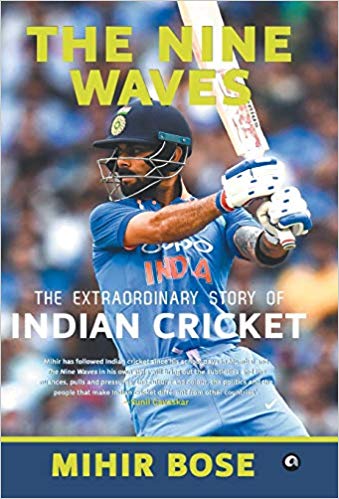Reading Indian cricket history, especially when the clamour around the game is at its peak—during the four-yearly World Cup (luckily not during the Indian Premier League, at least not yet)—has its charms. For starters, the historic perspective it provides could be fascinating, riveting and perplexing as well.
The 2019 World Cup matches were staged at some of the hallowed venues of cricket in England. Journalist Mihir Bose’s book, The Nine Waves: The Extraordinary Story of Indian Cricket, helps one revisit the days when, to play in those stadia, pre-Independent Indian sides had to plead and pray till the English overlords of cricket allowed ‘wannabe natives’ a few days under the typically ever-absent English sun. How the tables have turned.
At the tournament’s latest edition, the cricket establishment was keen to accommodate the Indian side—if possible at all the venues—for the World Cup’s success and revenue generating capabilities depended on Virat Kohli’s men remaining in the hunt till the end. So much is the demand for India that the format of the tournament, with each team playing nine league matches to quality for the semifinals, was decided to maximize the revenue potential from the Indian outings. The book tries to narrate India’s journey, from being at the mercy of cricket’s First Nation, to becoming the first nation every other cricket playing nation runs behind.

